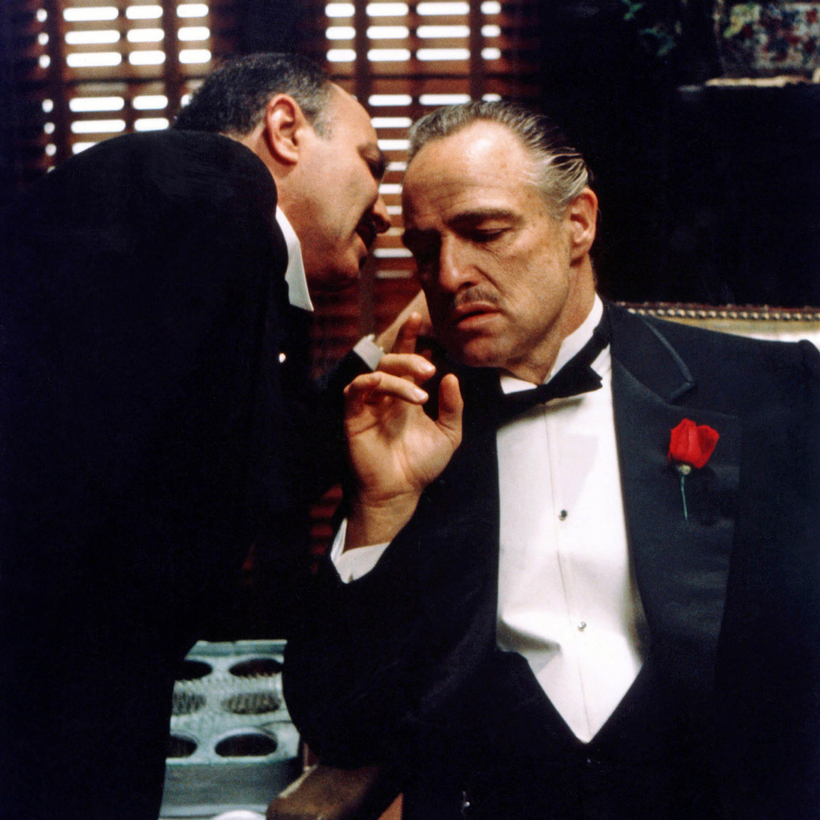About four and a half years ago, AIR MAIL’s Co-Editor Graydon Carter forwarded me a movie script he had been sent about the making of The Godfather. It was a dramatized version of the story, but a fairly accurate, captivating one, and Graydon thought it might serve as the basis for a great podcast on the subject.
We kicked the idea around for a month, mapping out an eight-episode series that told the story of how Mario Puzo’s best-selling novel was adapted for the screen, defying controlling studio executives and vindictive mafiosi to become a New Hollywood masterpiece that stands toe to toe with the greatest films ever made. However, for reasons I can no longer recall—probably something to do with AIR MAIL being a year-old business in the thick of a pandemic—we eventually put our podcast designs on ice.

Then, in 2021, Mark Seal, a reporter who had written countless stories for Graydon at Vanity Fair, published Leave the Gun, Take the Cannoli. As you can probably glean from the title, the book is an epic account of the making of The Godfather. It expands upon a piece Mark wrote for Vanity Fair in 2009 and furthers the scholarship in a staggering way. The book is more than just a history of one film—it is a study of Hollywood and the Mafia, and how the two forces came to form the poles of an axis around which the American imagination revolves.
Graydon and I devoured Mark’s book in an afternoon and, convinced fate was at work—the 50th anniversary of the film’s 1972 release was fast approaching, too—asked Mark if he’d do a podcast with AIR MAIL. To our immense delight, he said yes, and we began the process of writing and recording.

Like many of the men and women who worked on The Godfather, Mark and I were neophytes. Neither of us had made a podcast before, and there were false starts aplenty. Sifting through Mark’s archival interviews, which feature everyone from Robert Evans and James Caan to Mario Puzo’s assistant and Paramount Pictures’ head of publicity, was a herculean effort in its own right. We were lucky to find worthy collaborators in Tina Mullen, who was instrumental in writing and recording the podcast, and Dylan Fagan, who edited it.
To learn the full story of why The Godfather was such a nightmare to make, you’ll have to tune in to the podcast. But the central theme at play is that everyone involved in the production has his or her own version of the truth. As one of the movie’s producers, Al Ruddy, said, borrowing a phrase from J.F.K., “A bad movie is an orphan, but a great movie has 1,000 fathers.” So many of the accounts we sifted through are conflicting, and fabrications are even harder to parse when they’re coming from the lips of Hollywood Pooh-Bahs and smooth-tongued gangsters.
Ultimately, even though our show took longer to make than The Godfather itself, we’re fairly certain it’s the most comprehensive “making of” story you will find on the subject. We hope it gives you a sense of the near impossibility of creating a masterpiece—how details one could never even think to address have to fall into place just so—and memorializes the efforts of hundreds of men and women who, even if they weren’t always telling the truth, had the best of intentions.
Leave the Gun, Take the Cannoli
Listen to the trailer below, and to the entire first episode on iHeart, Apple Podcasts, or Spotify.
Nathan King is a Deputy Editor at Air Mail

